On Day 6 of our adventure we spent the first part of the day at Ft. McHenry National Monument. Then we headed for Harriet Tubman Underground Railroad in Dorchester County, Maryland. 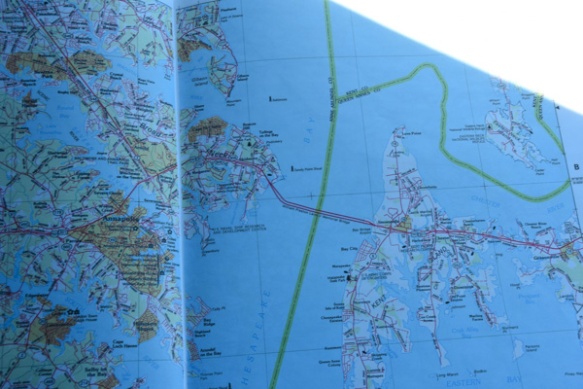
I commented in the last post that there is a lot of water in Maryland!
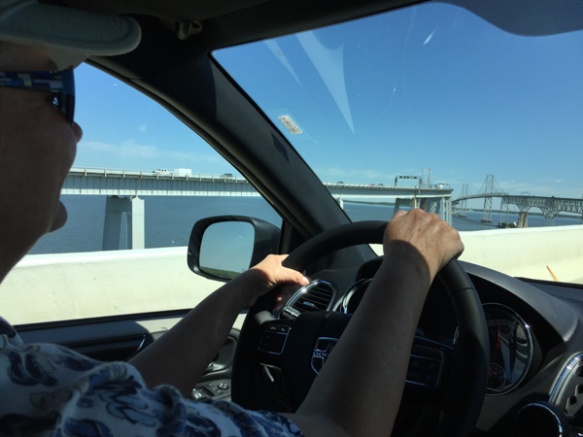
At this time Chris was driving and we didn’t know until we got here that driving across bridges is not one of her favorite things.
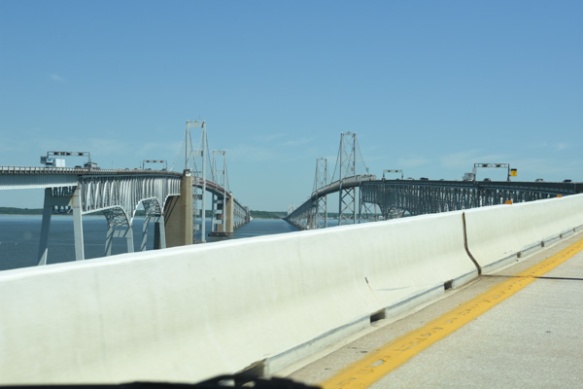
This is a 4-mile bridge across Chesapeake Bay.
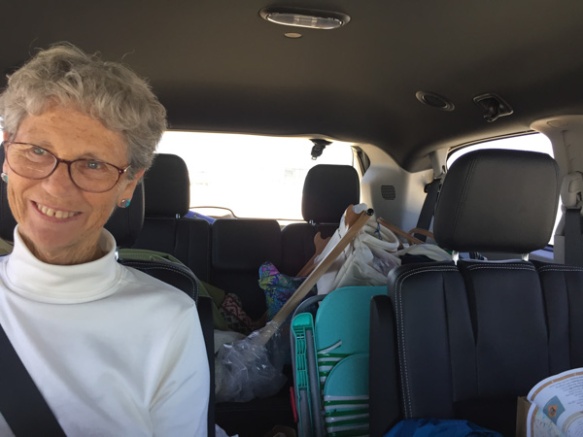
Kathleen gave moral support from the back seat. Chris did just fine.
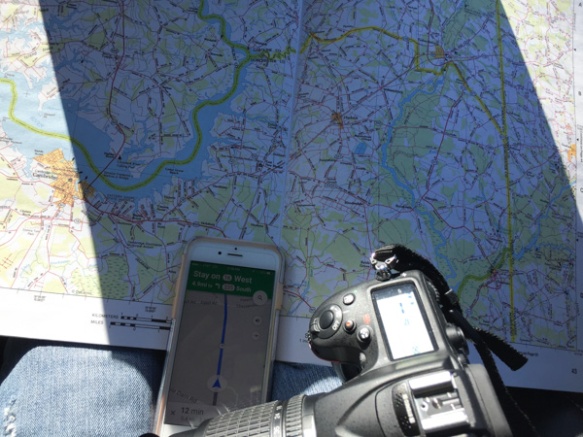
I rode shotgun trying to figure out where we were going and not wanting to miss any photo ops. It turns out that our Visitor Center was not on this map because it is brand new.
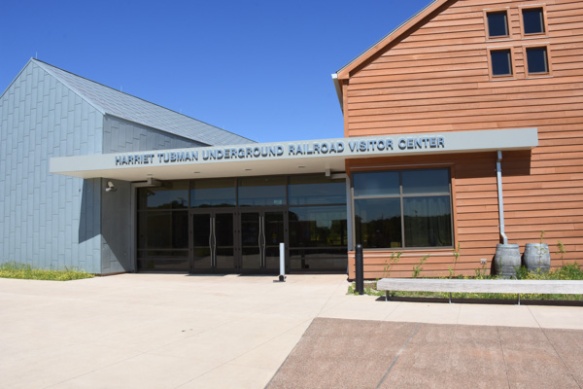
The Visitor Center is co-managed by the State of Maryland and the Park Service. To fully experience the Underground Railroad site you can follow a driving tour 223 miles through Maryland, Delaware, and Pennsylvania. There is written and digital documentation to explain the sites along the way. But we didn’t know that when we made this plan. So we ended up seeing only a fraction of what is actually part of the Underground Railroad Byway.
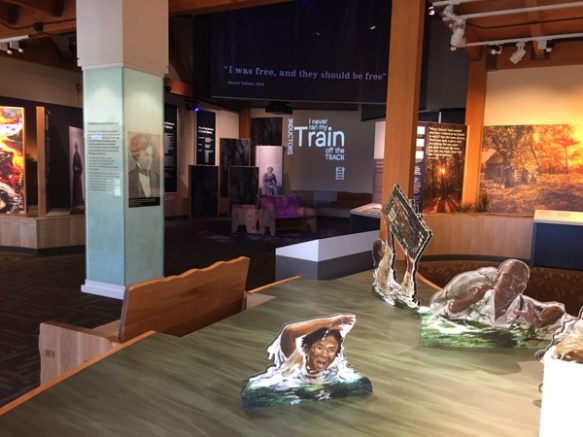
The exhibits in the Visitor Center gave us a good understanding of Harriet Tubman’s life and the heroism that she showed in escaping slavery and then returning many times to rescue over 70 family members and friends.
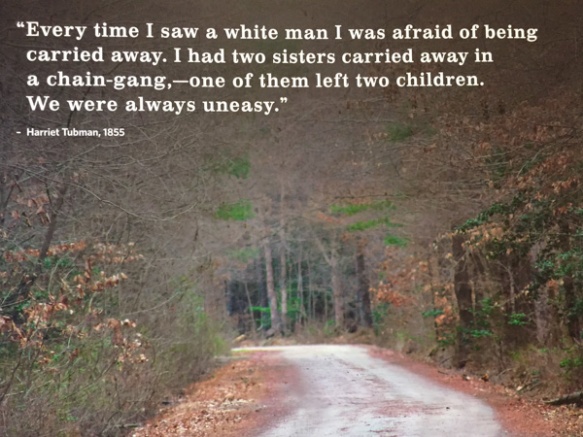
A chilling quote that describes some of the anguish inflicted by one person on another.
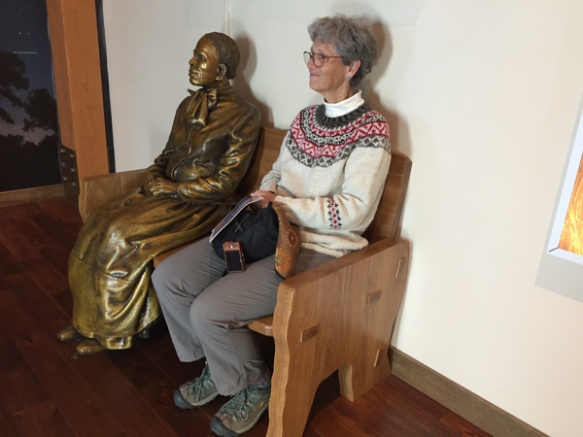
At the last stop in the Visitor Center there is a video with modern era commentary about human rights and the fact that we still struggle.
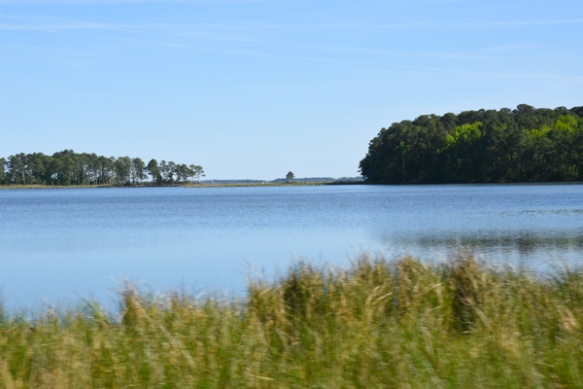
After leaving the Visitor Center we followed the Driving Tour map for a short way on our way to picking up Interstate 50. We drove through the Blackwater National Wildlife Refuge, largely unchanged from the time when Harriet Tubman lived in the area.
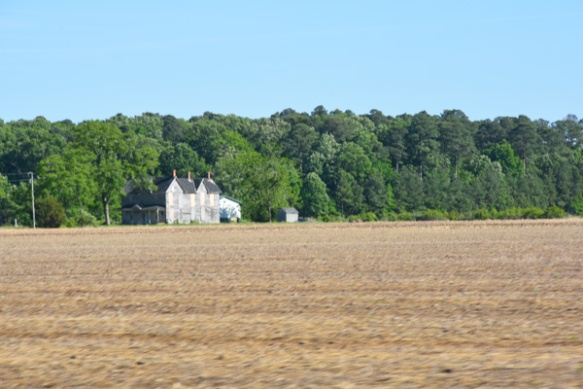
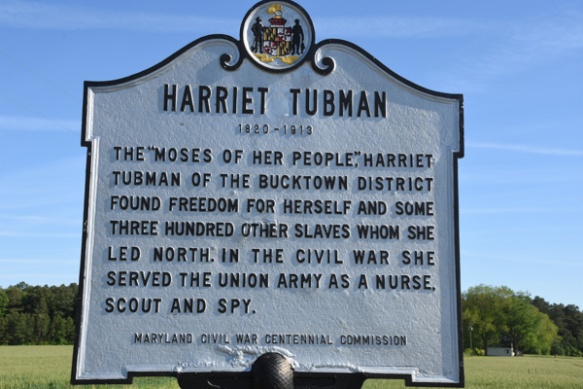
There are signs along the way.
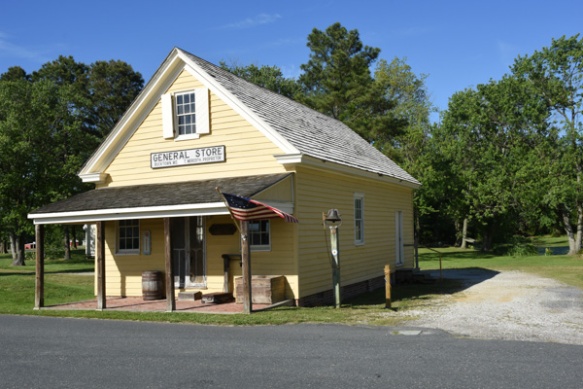
This is the Bucktown Store, closed when we drove by. Harriet was in this store when the shopkeeper threw a 2-pound weight at a slave who was fleeing the store, but instead hit Harriet, nearly killing her.
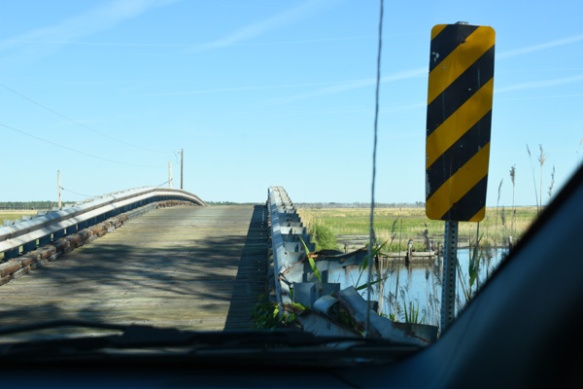
The one-lane, wooden Bestpitch Ferry Bridge at the site of a former ferry landing. Agricultural and timber products were transported on rafts.
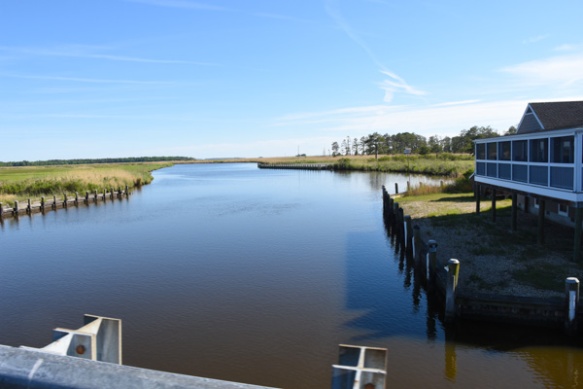
Harriet’s knowledge of the waterways and survival in the marshes aided her in escape and rescuing others.
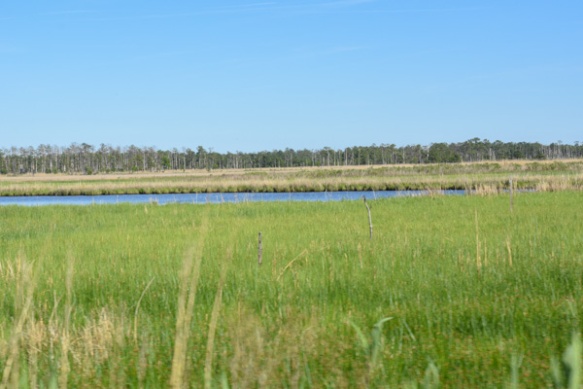
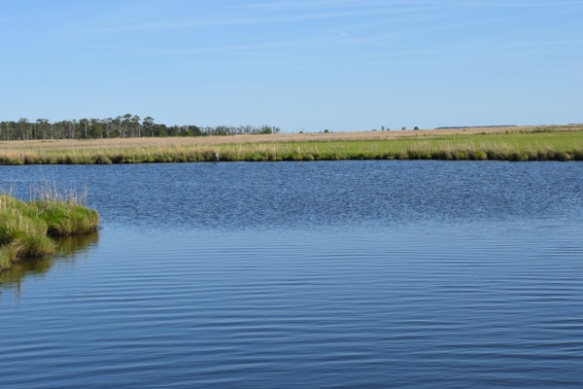
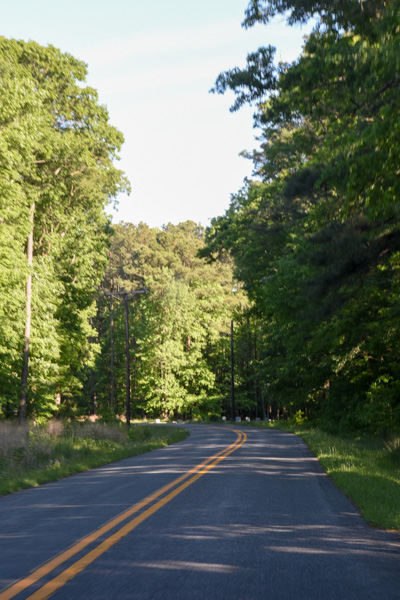
We inadvertently left the documented byway and followed country roads toward the Nanticoke River where we would turn north to pick up I-50.
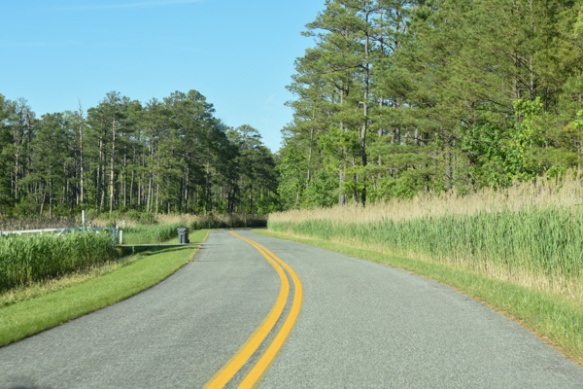
I wish I knew what that very tall grass was on the side of the road.
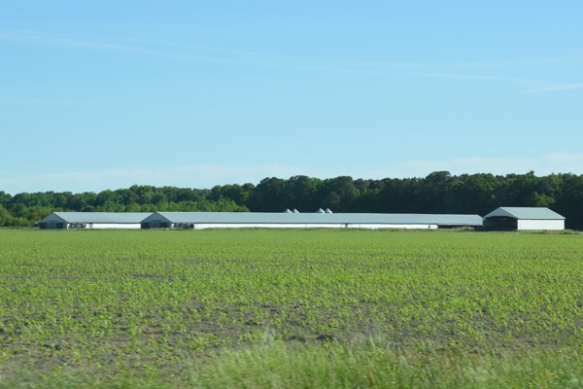
Modern farming. We saw a lot of these huge long barns and decided that they were probably chicken houses. Agriculture is Maryland’s largest commercial industry and livestock, particularly broilers (5-12 week old chickens), followed by dairy, are the leading products.
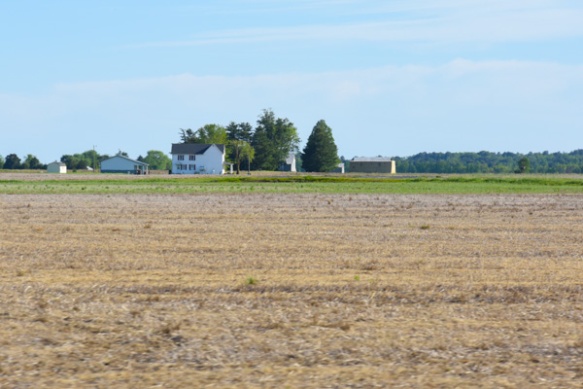
Drive-by photography.
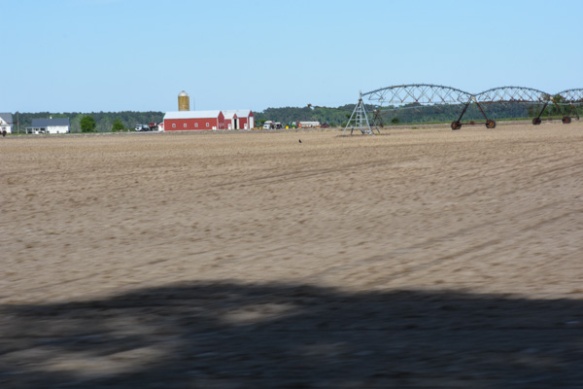
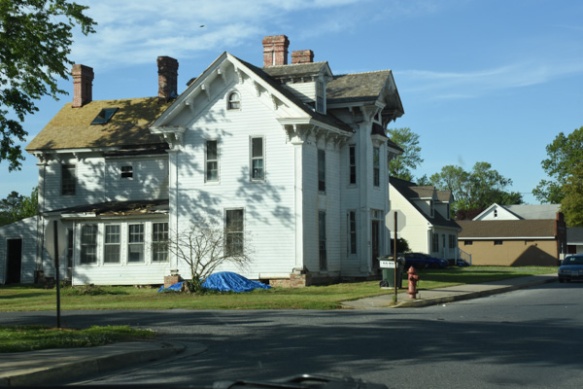
This house is in the town of Vienna where we joined up with I-50.
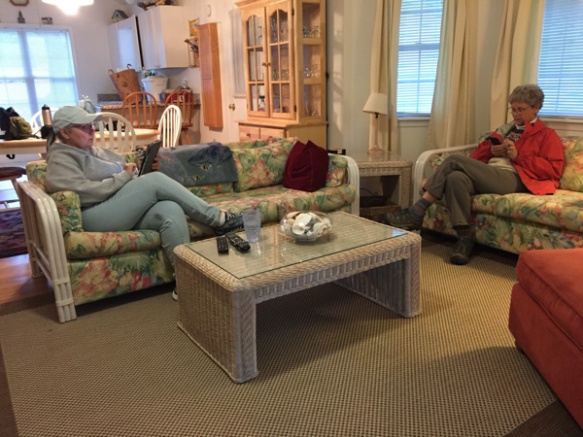
This “beachy” comfortable house near the town of Berlin was to be our headquarters for the next two nights. Look familiar? Chris and Kathleen figuring out where to go for dinner. They found a seafood restaurant and I had salmon, grits, and sweet potato fries. Southern dining. I hadn’t realized until this trip how close to “The South” Maryland is.
Our first day of site seeing took us to Harpers Ferry and immersion in Civil War era politics and strife. We had a wonderful diversion at the Maryland Sheep and Wool Festival during the weekend. Then we saw Gettysburg and were immersed in Civil War history for a day. Fort McHenry took us back into history, focusing on another war and also learning about the Fort’s role during the Civil War as well. Learning about the Underground Railroad and Harriet Tubman emphasized this sobering and grim part of U.S. history known as slavery. Maybe it’s like reading the newspaper–most of what makes “news” is not happy. These episodes of history depict the desire for power and the struggle of those being oppressed.
I was ready to see PONIES! That will be tomorrow.
